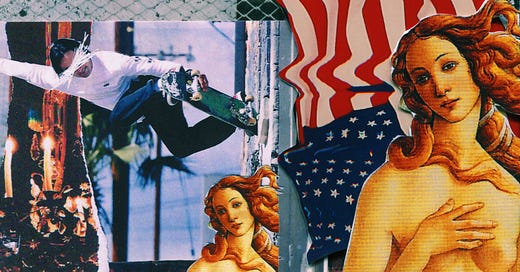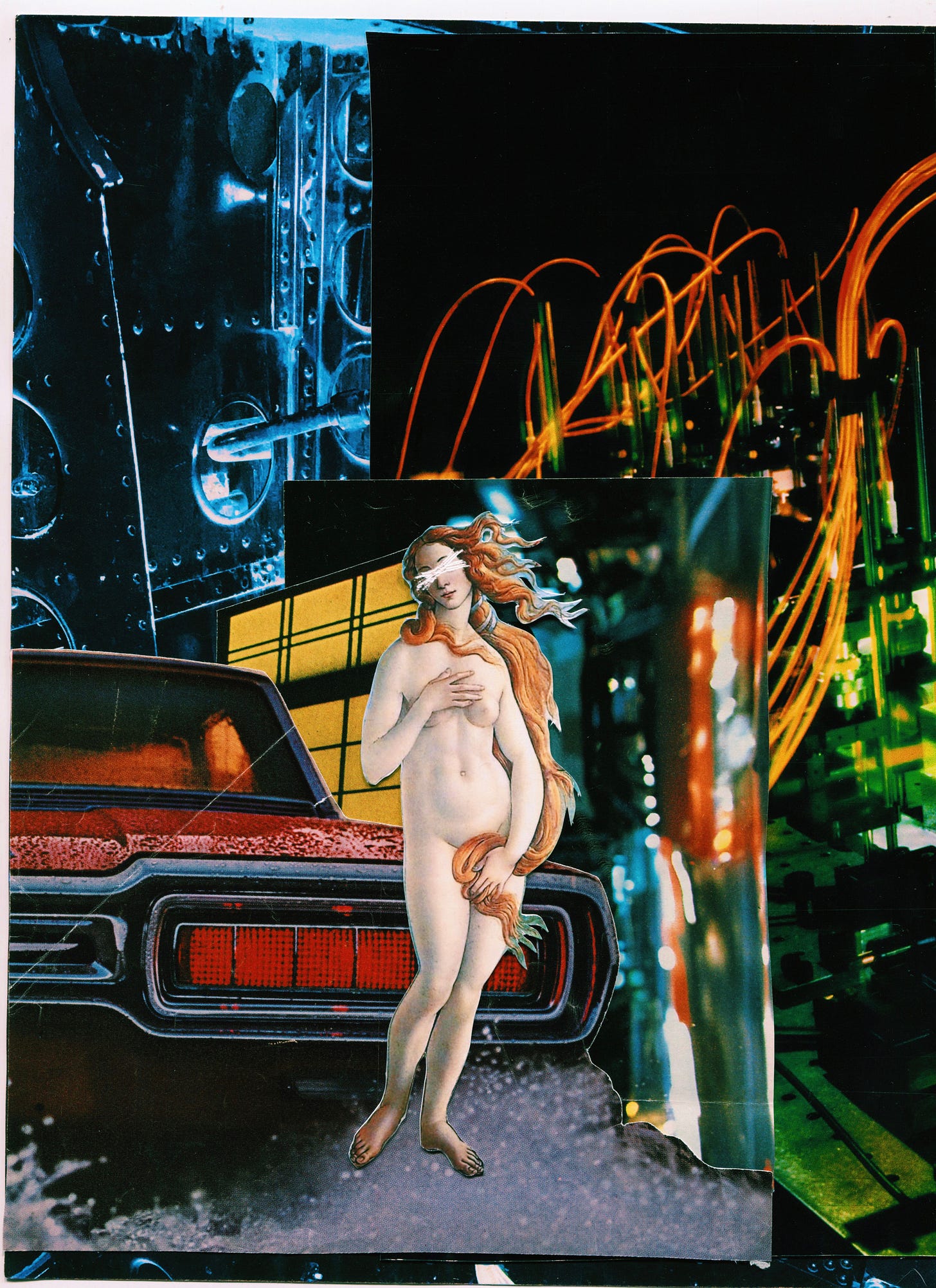As a historian I see a great many black and white portraits of stiffly posed people in unflattering garments. Even for someone intensely interested in the past, these images quickly blur together into an undifferentiated blob of old-timeyness. But, once in a while, something in the eyes of one of these subjects holds me, beaming a message across time about who this person was. One such photograph is the 1903 portrait of feminist Carry Nation, in which she stands in a dress of stiff white linen, holding open some tract in her thick-fingered hands. There is an arresting fire in her eyes, but whether it is that of madness or inspiration I do not know.
Like most extremists, Carry Nation performed the acts that made her famous after years of foiled longing for recognition and love. She was born on a slave plantation in Kentucky to a mother rumored to believe that she was Queen Elizabeth. This woman would die in an insane asylum in Nevada in 1893. Carry’s first marriage was to Union veteran Charles Gloyd in 1867. Gloyd turned out to have a severe drinking habit, which killed him six months after the birth of his and Carry’s child in 1869. Her second marriage was to a doctor 12 years her senior named David Nation. Of him, she would later write, “My married life with Mr. Nation was not a happy one. I found out he deceived me in many things.”
After moving with him to Medicine Lodge, Kansas in 1889, Carry became more deeply invested in her Methodist religion. She had visions and dreams she believed were prophetic. She went into prisons to preach and allowed poor people to stay for free at the hotel she operated. She also began to greet barkeepers on the street as “bedmates of Satan,” and snatch cigars from the mouths of passing men. Her growing obsession with sin and vice came to center on the illegal taverns in the nearby town of Kiowa. One morning in June 1900, after praying for guidance, she marched to Kiowa with pockets full of stones and bits of brick, or as she lovingly called them, “smashers.”
She started by smashing in the front window of an establishment called Dobson’s Saloon. She then stalked into the barroom and began hefting chunks of brick into the glittering ranks of bottles. To envision the impression she made, I suggest watching a Youtube video titled “Aldi Wrecking Rampage–Woman Smashes 500 Bottles of Booze.” But, imagine if the woman in the video, instead of being a vagrant in sweatpants, were a victorian schoolmarm in puffy sleeves, who sang hymns all the while. Incidentally, many of the comments on this video are some version of “why did people just stand there and let her break all the bottles?” How much more inescapable is this question when applied to a woman wreaking havoc in what was essentially a Wild West saloon? The answer in both cases, I suspect, is that people just weren’t ready. Nation would proceed to demolish three more barrooms that day.
This was the beginning of Carry Nation’s career as a public figure and eventual American icon. She ultimately “smashed” numerous saloons (estimates range widely), was arrested more than 30 times, and endured a number of bruising assaults. At some point she graduated from rocks to a hatchet, with which she was always depicted in the many caricatures she inspired. She was lampooned as the hateful archetype of the strident woman, the battleaxe that sends fun, good cheer, and sex scampering for refuge with each smashing blow.
The caricature does not do justice to Nation’s importance. Her actions made her not only an object of ridicule, but a beloved role model to a surprising number of women. As her career progressed, she marched with hundreds of women on her smashing expeditions, a cohort she called the “Home Defender’s Army.” Carry Nation was not an isolated psycho, but an especially colorful professor of a belief system that inspired tens of thousands of women in the late nineteenth century. This belief system has been called feminism, but it was utterly different in its priorities and values from the feminism we know today.
The name of the “Home Defender’s Army” echoed the “home protection” idea popularized by Frances Willard. Willard was the second president of the Women’s Christian Temperance Union, an organization of which Nation founded a chapter in Kansas. This organization, though less remembered than the National American Woman Suffrage Association, was far larger. In fact, it was the largest women’s political organization in history. Following Frances Willard’s accession to the presidency in 1879, the WCTU went from an exclusive focus on banning alcohol to campaigning for suffrage, the 8-hour day, and raising the age of consent. All of these issues served the interests of the home, protecting it from poverty, sexual iniquity and, above all, the effects of drunkenness. The cause of home protection depended on the ballot for women, because only through the ballot could the motherly instincts that shielded families from vice and exploitation hold political sway. The anti-alcohol crusade drew women to the cause of suffrage who would not have been motivated by abstract arguments for equal rights. Reigning in a home-destroying culture was of immediate concern to the middle-class women of the period, and built unprecedented support behind votes for women.
While home protection feminism played a crucial role in the struggle for women’s rights, it appears conservative by today’s standards. It is impossible to conceive of the WCTU’s slogan, “for God, for Home, for Native Land” being adopted by any feminist group now. The WCTU supported censorship, curfews, and suppression of vice in all its forms. They saw womanhood as synonymous with motherhood, and motherhood as synonymous with the harsh discipline of Victorian Christianity. The highest goal of gaining the ballot was to bring the whole of society up to the standard of the well-run Christian home. As Willard stirringly described her hopes, “when the sons they love shall go forth to life's battle, still let their mothers walk beside them, sweet and serious, and clad in the garments of power.” This was no stay-home-motherhood, but a call for women to be the political mothers of all of American society. For many more women than joined the mainline suffrage movement, this was a goal worth fighting for.
The mainstream feminism of today has no place for women who resemble Frances Willard or Carry Nation. These women saw themselves as mothers before everything, while the central issue of contemporary feminism is the right not to be defined by motherhood. More than this, 21st century feminism conceives of womanhood itself as a “social construct” imposed on people with certain bodies. There is much carping about how men are deprived of any heroic calling in the twenty-first century. But what about women? The idea that women as such have any special destiny presupposes that there is such a thing as womanhood, something worth celebrating for its distinctive, innate attributes. This supposition was foundational to nineteenth-century women’s politics, and I believe it is still shared by most women. However, I suspect few western feminist thought-leaders would affirm it.
The most visible remnant of home protection feminism is found today on the Right. A clear example is the group Moms for Liberty. This organization, which seeks to control school boards in order to restrict progressive educational agendas, was recently labeled “right-wing extremist” by the Southern Poverty Law Center. Like the WCTU Moms for Liberty fights to extend the prerogatives of mothers into the public sphere. Instead of the Liquor Trust, they see a threat to the home and mothers’ power in the Department of Education.
The analogy between the WCTU and Mom’s for Liberty points up the sobering truth that home protection feminism can only be embraced today by the kinds of activist women likely to be labeled right-wing extremists. Truly, political motherhood is a near-impossibility on the Left, because to identify a woman’s interests with those of children or “the home” is, by Left standards, to diminish her humanity. Until that changes, as I hope it will, only right-wing women will be willing to say, with Carry Nation, “I represent the distracted, suffering, loving motherhood of the World.”
Hamilton Craig is a doctoral student at CUNY researching farmers' movements in the United States. His essays have appeared in Compact magazine, Countere magazine, and Front Porch Republic, as well as academic journals. His fiction has appeared in Expat and DFL lit. Follow him @hamilton_h_craig
Please consider signing up for a paid subscription to this page for more riveting content. If you’re new to Cracks in Pomo, check out the About page or read up on our Essentials. Also check out our podcast on Spotify, Apple, and YouTube and follow us on Instagram and Twitter.
For more on the early waves of feminism, check out my article at Mere Orthodoxy.
graphics by Patrick Keohane @revolvingstyle






